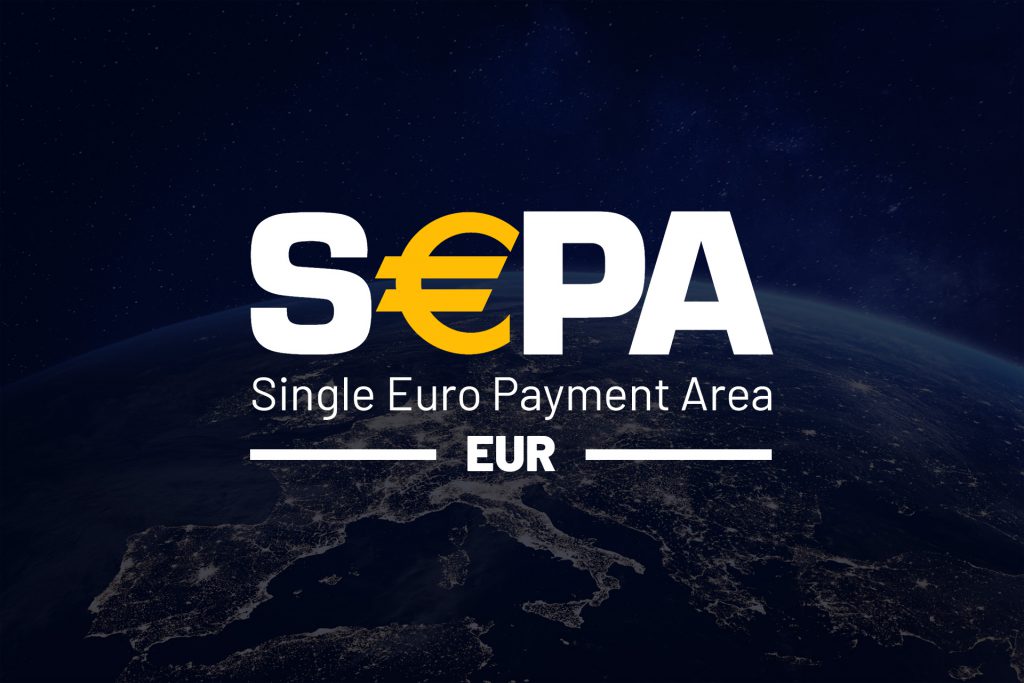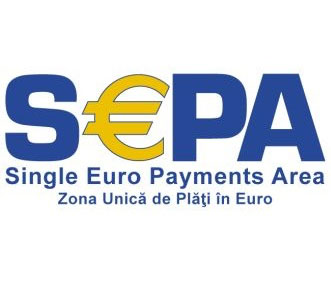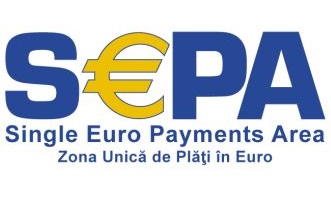SEPA – Payments in Euros
The Single Euro Payments Area – SEPA is the largest scope project deployed by the European payments industry having as aim the creation of an integrated market for euro payment services, by eliminating the legal, technical and commercial barriers among the national payments markets of Europe.
SEPA este acea zonă geografică în care plăţile fără numerar în euro sunt efectuate prin intermediul unor instrumente de plată standardizate, într-o primă etapă SEPA Credit Transfer (SCT), SEPA Direct Debit (SDD) și plăţi prin carduri SEPA, la care s-au adăugat ulterior SEPA Credit Transfer Instant (SCT Inst), SEPA Proxy Lookup (SPL), SEPA Request-to-Pay (SRTP), One-Leg Out Instant Credit Transfer (OCT Inst), SEPA Payment Account Access (SPAA), Verification of Payee (VoP).
These standards represent the basis for developing payment services made exclusively electronically, including Internet and mobile device payments, electronic invoicing services and other electronic services with added value.
Zona geografică include în prezent cele 27 Statele membre ale Uniunii Europene, la care se adaugă Marea Britanie, Islanda, Norvegia, Liechtenstein, Elveția, Monaco, San Marino, Andorra, Vatican, Muntenegru și Albania.
In SEPA, we can make euro payments between any accounts opened with the banks operating in this geographical area, with the same ease and the same service and security level with which they are made inside national borders.
Începând cu 9 ianuarie 2025 prestatorii de plată din statele membre a căror monedă este eur trebuie să ofere utilizatorilor posibilitatea primirii de transferuri credit instant în eur și începând cu data de 9 octombrie, posibilitatea transmiterii de transferuri credit instant în eur, în conformitate cu prevederile Regulamentului (UE) 2024/886 al Parlamentului European și al Consiliului din 13 martie 2024 de modificare a Regulamentelor (UE) nr. 260/2012 și (UE) 2021/1230 și a Directivelor 98/26/CE și (UE) 2015/2366 în ceea ce privește transferurile credit instant în euro.
Pentru țările care nu au moneda eur, termenele sunt de 9 ianuarie 2027 pentru primirea de transferuri credit instant în eur și 9 iulie 2027 pentru transmiterea de transferuri credit instant în eur.
European authorities expect that the harmonization of the legal framework and of the technical payment infrastructures at European level smoothen business processes by replacing paper-based operations with electronic standardized solutions, such as electronic invoicing.
The single euro payments area has already become a reality in the euro-area where, starting with August 2014, all euro payments via credit transfer and direct debit, made as domestic or cross-border payments, observe the business rules and the technical requirements defined by SEPA standards. Among the most important features of these instruments are:
- pan-European coverage;
- full transfer of the paid amount into the beneficiary’s account;
- transparency of fees by showing them separately;
- maximal settlement dates – one business day for credit transfer, two business days for periodic direct debit payments;
- utilization of the BIC and IBAN identification codes for the unique identification of the bank and of the account number;
- automated processing via electronic processing systems from the payment initiator to the final beneficiary;
- utilization of payment messages in the ISO 20022 XML format for the inter-bank segment.
A novelty of the SEPA area is the possibility to make and collect cross-border euro payments via direct debit due to the harmonization of practices and the adoption of the same technical formats across national markets.
For the non-euro area, the utilization of SEPA instruments for euro payments became mandatory starting with 31 October 2016, in conformity with the provisions of the Regulation (EU) 260/2012.
Since 2007, the banking community from Romania has been involved in the efforts of harmonization and standardization performed across the European payments industry.
Following our joining the European Union, the Romanian Association of Banks (RAB) became a member of the European Payments Council in March 2007, representing the banking community from Romania and contributing – via its members in the Working Groups of this organization – to the drawing up of the SEPA standards and documentation.
There is on-going collaboration among the banking community, TRANSFOND, the State Treasury and the National Bank of Romania for a common strategy when implementing SEPA and for developing some payment services initiated and processed electronically, payments that are efficient and attractive for customers.
The roll out of the SEPA project in Romania has materialized in banks’ adhering to the SEPA schemes starting with 2008. 23 credit institutions, the branches of foreign banks from the EU Member States and payment institutions – via which over 98 % of euro credit transfer operations take place – joined the SEPA Credit Transfer Scheme, delivering euro payment services via SEPA Credit Transfer to customers. One credit institution joined the SEPA Direct Debit Core Scheme, delivering SEPA euro direct debit services.
A major objective is on-going communication with the users of payment services and the development of electronic services based on SEPA instruments which highly satisfy users’ requirements.
The Romanian Association of Banks supports the adhesion process for the credit institutions which intend to provide SEPA rules compliance and assume the adhesion process co-ordinated by the European Payments Council, the association carrying out the role of support organization for joining the SEPA– NASO (National Adherence Support Organization) payment schemes.





